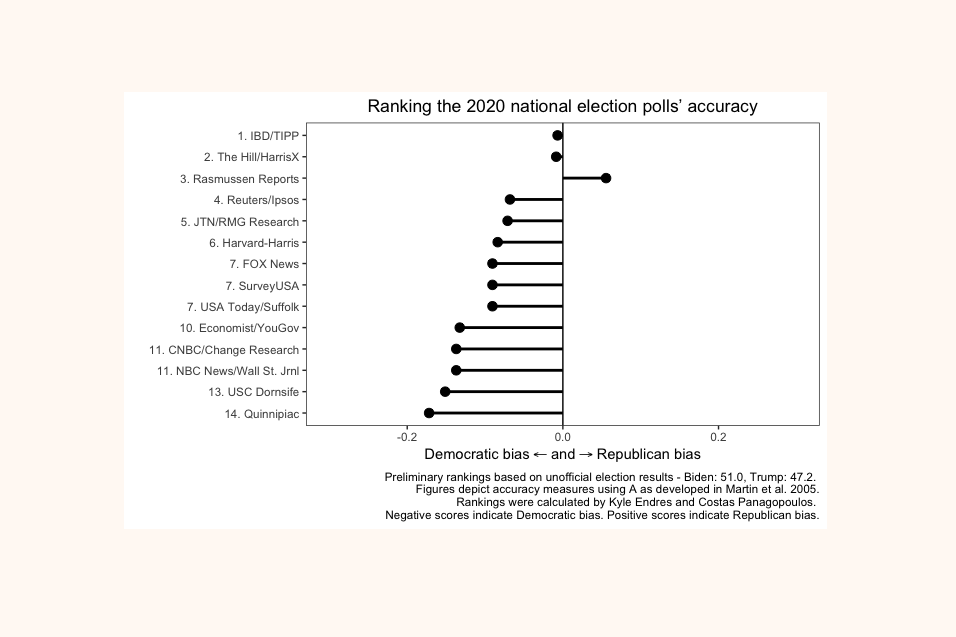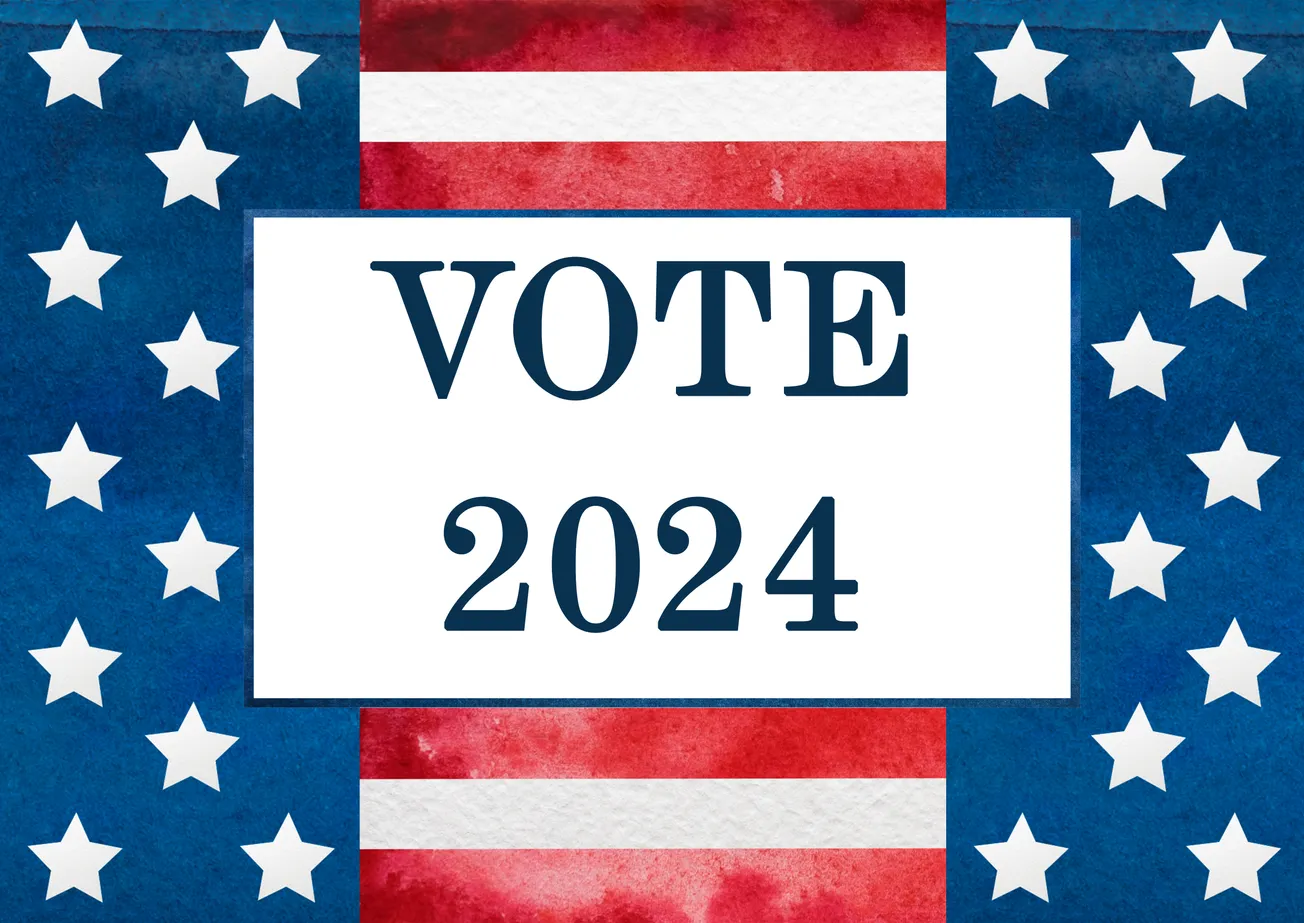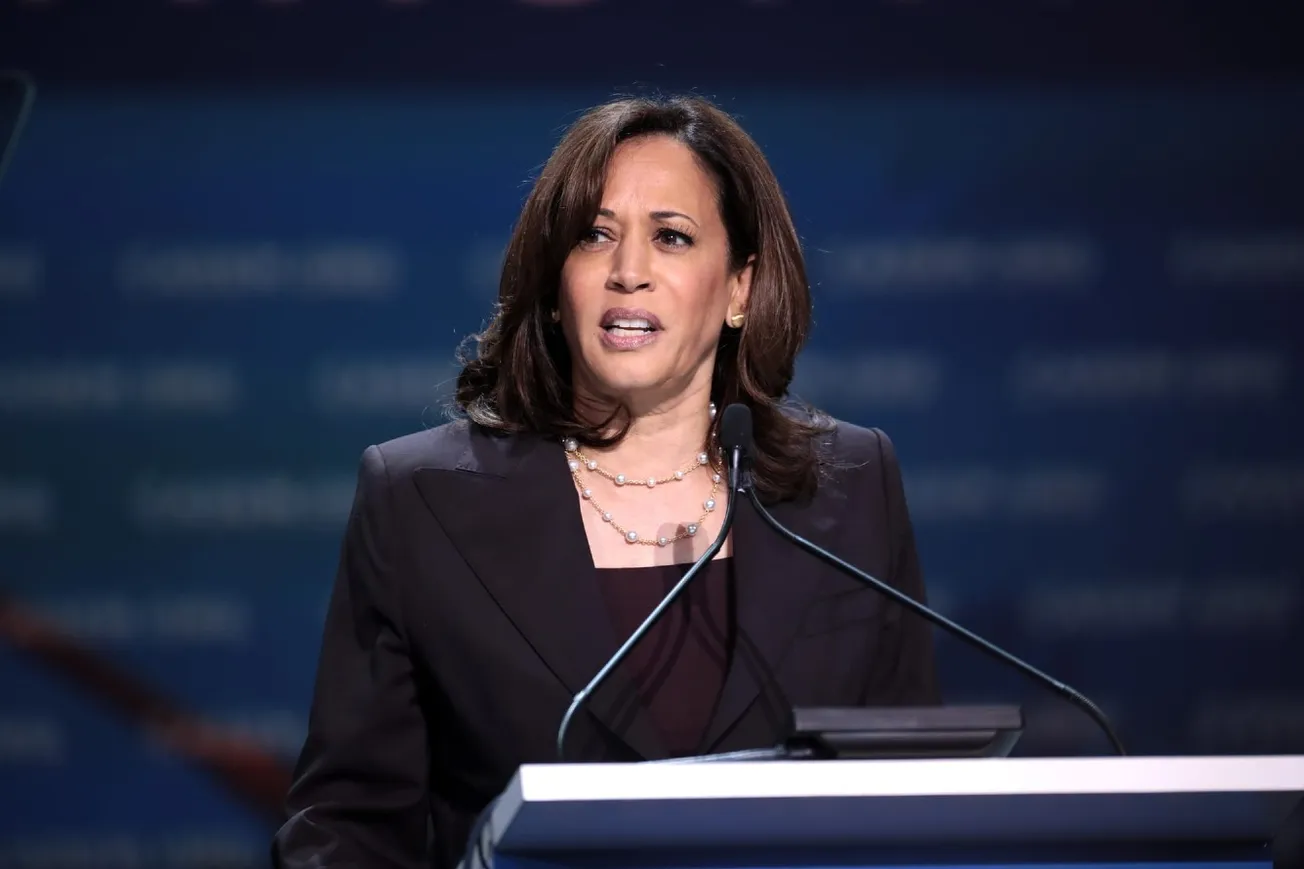Who will win the next presidential election? Of course, no one knows, since it’s still 11 months off. But if the election were held today, there would be a second term for President Donald Trump, the latest I&I/TIPP Poll shows.
The national online poll, taken from Nov. 29-Dec. 1 from among 1301 registered voters, shows Trump with a slim two percentage point edge over President Joe Biden, 41% to 39%. The poll has a margin of error of +/-2.8 percentage points.
Notably, there isn’t a majority for either of the candidates. Among those responding, 13% opted for other “other” while 7% said “not sure,” a total of 20% of the total sample.
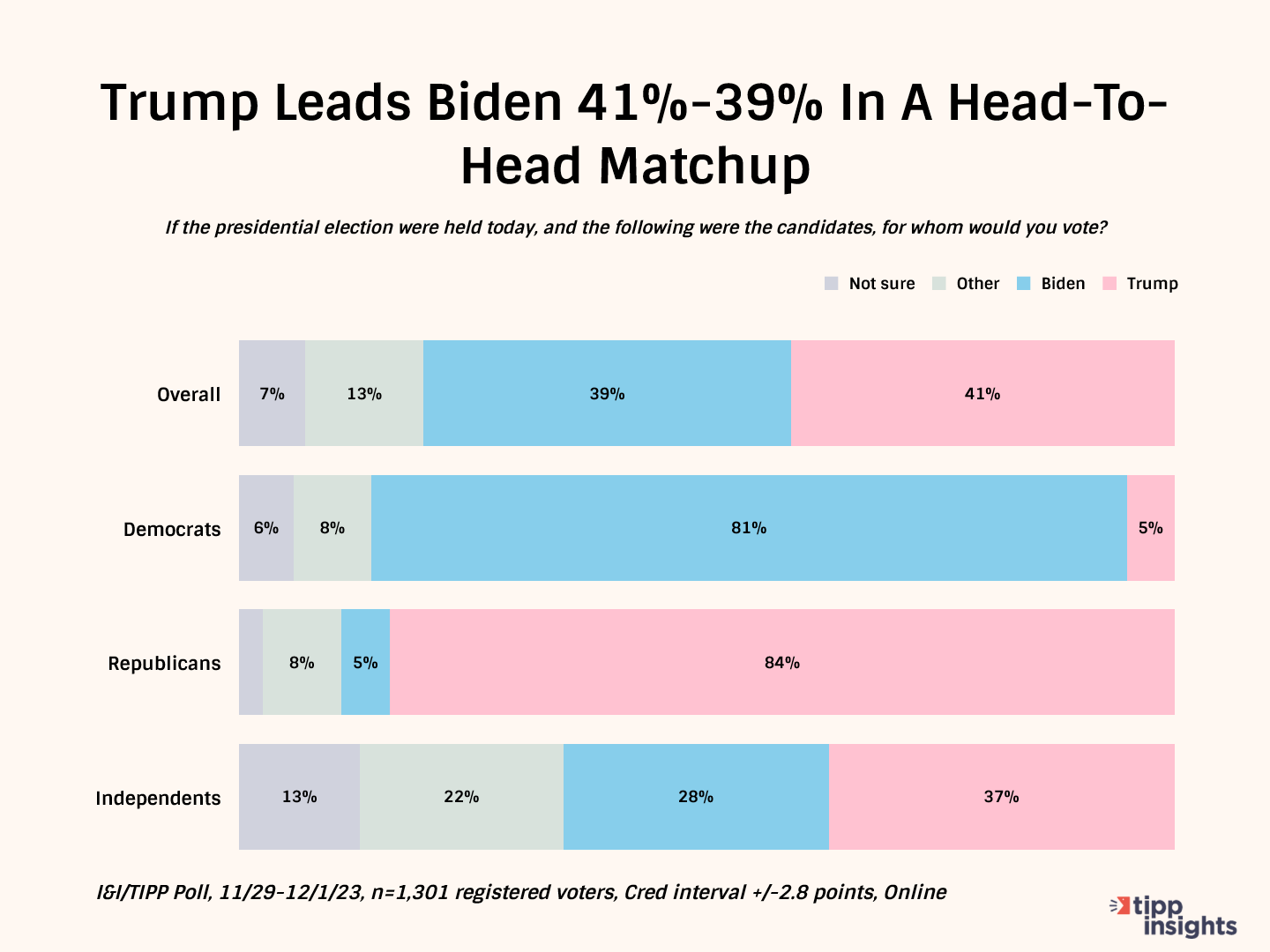
So while Trump has an edge, there remains a lot of work to be done for both parties to bring the one in five voters who do not support their candidates back into the fold.
Can it be done? Right now, both presidential candidates draw fairly equal support from members of their own party. Republicans, for instance, would vote 84% for Trump, 5% for Biden, 8% for other, with 3% not sure. Democrats would go 81% for Biden, 5% for Trump, 8% for someone else, and 5% not sure.
So who decides the election? If it comes down to just the two big candidates, Biden and Trump, slugging it out, the answer is simple: Independents. They will hold the key to 2024’s outcome.
Right now, independents strongly favor Trump over Biden, 37% to 28%. That’s well outside the 4.9 percentage point margin of error for the independents.
But they also have big doubts, and might well be a volatile component of the overall vote. Of the independents, a large 22% chunk prefers “other” to the two major candidates, while 13% aren’t sure. That’s a total of 35% of independents, who are likely to make up around a third of all voters, a virtual third political party lacking only a written political platform.
For greater clarity, the I&I/TIPP Poll asked a separate question about presidential vote preference. This one added the specific names of three potential third party candidates to the mix: Robert F. Kennedy, Jr. (independent), who tallies 11% of the overall vote; and Cornell R. West (independent) and Jill Stein (Green Party), who each get 2%.
The result: While both major candidates have votes siphoned away by the third party names, Biden is hurt worse. Trump’s lead over Biden widens to five points from two points. From Trump’s 41% to 39% lead when just the two candidates are listed, the size of the lead expands to 38% to 33% when the third party candidates are added.
So, instead of taking votes from Trump as some recent polls have suggested, it looks like the opposite is true: Even a third party challenge from the well-known RFK will hurt Biden more than Trump.
What’s more, while Trump’s share of the all-important independent vote shrinks to 32% with the third-party candidates added, Biden’s plunges to just 19% — only a percentage point ahead of RFK’s 18% support among independents.
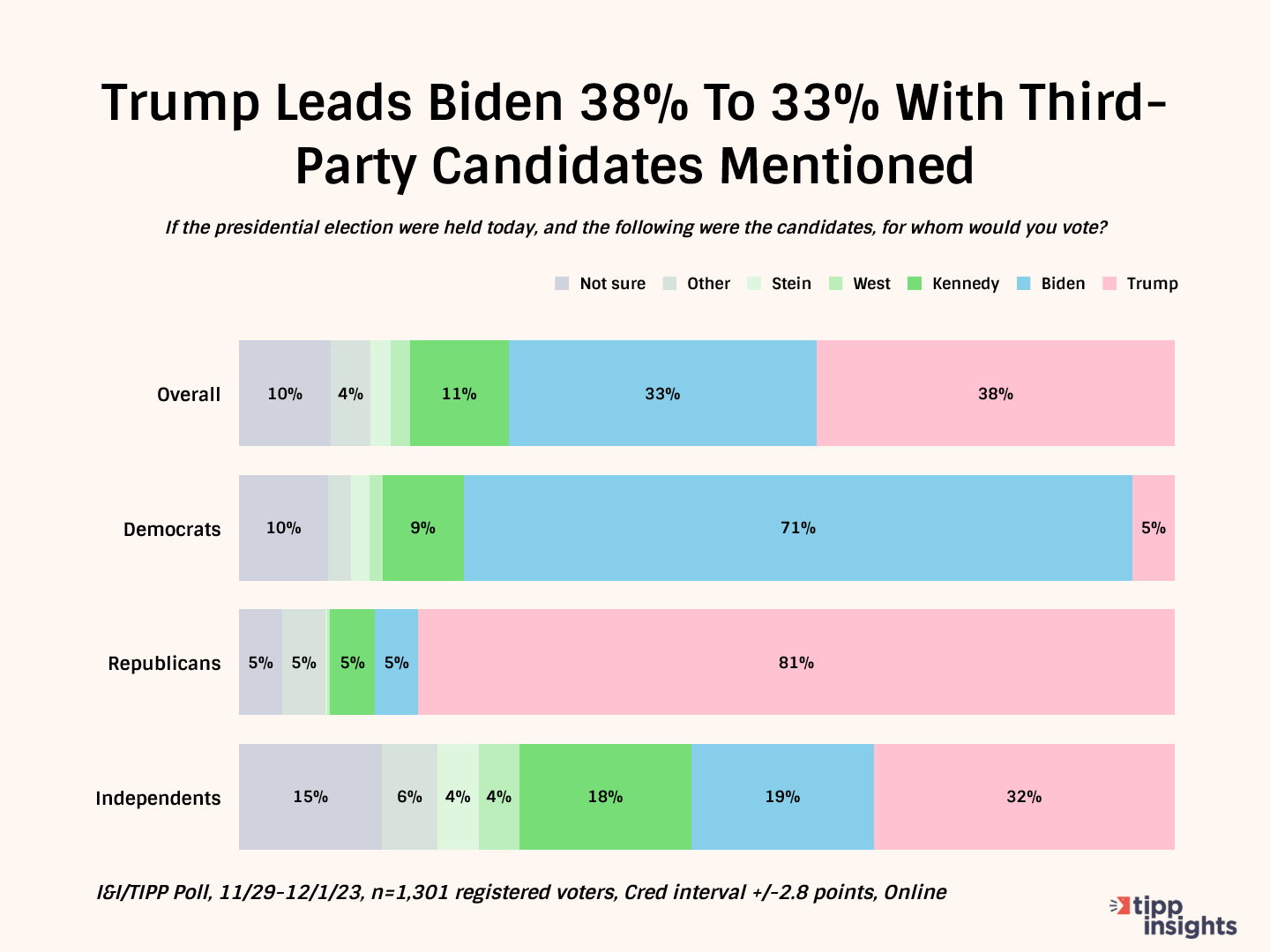
But who will run, other than the small handful of declared third-party candidates? And who will win the all-important primaries for both parties next year?
For the Republicans, the answer remains: Trump.
Even with six declared foes for the primary season, Trump garners 61% of the total vote, followed by former South Carolina Gov. Nikki Haley at 10%, Florida Gov. Ron DeSantis at 9%, author-entrepreneur-activist Vivek Ramaswamy at 7%, and former New Jersey Gov. Chris Christie, North Dakota Gov. Doug Burgum, and former Arkansas Gov. Asa Hutchison, all at 1%.
Only 2% answered “someone else.”
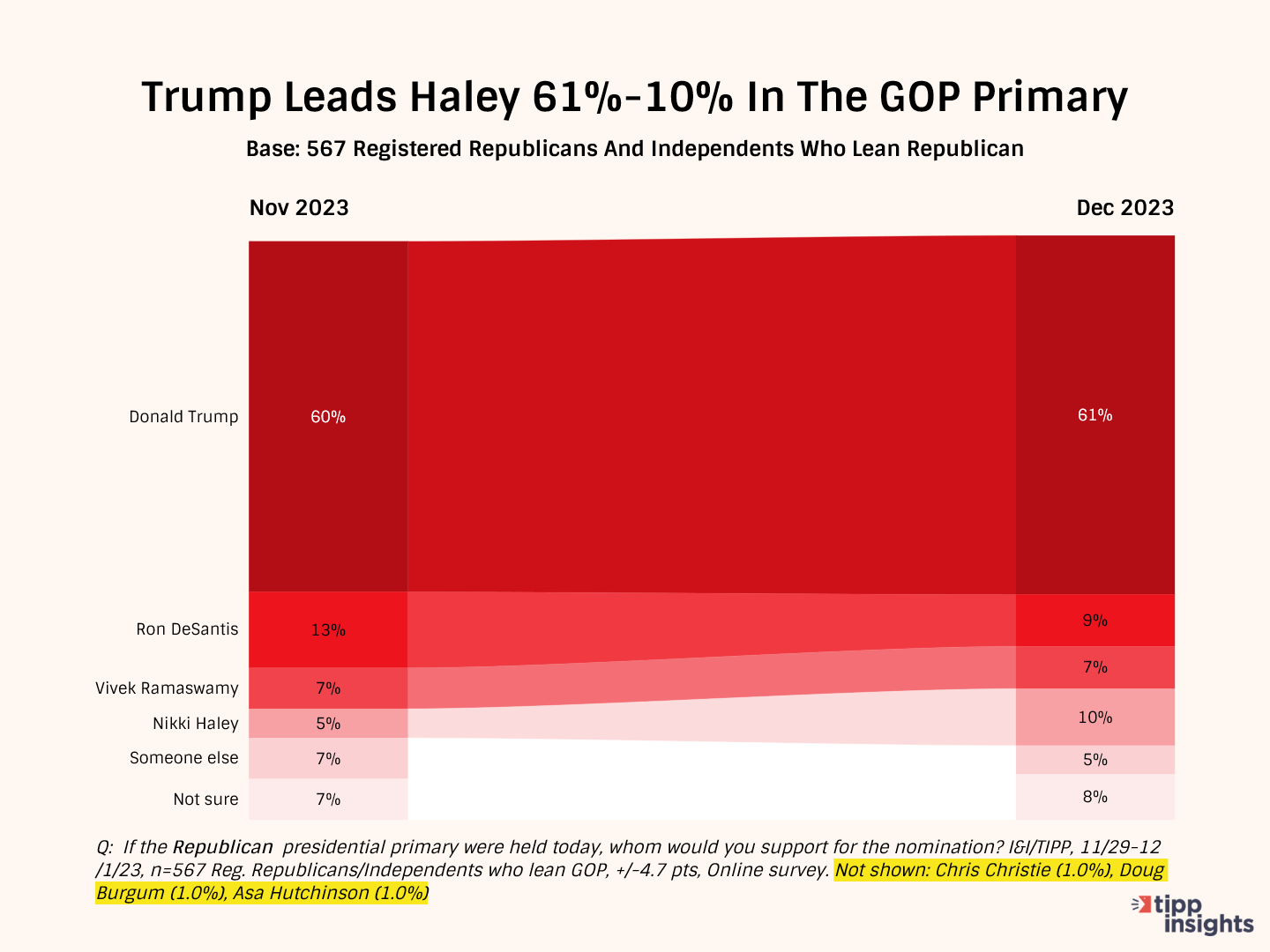
Biden finds himself in a similar situation. Like Trump, he has 61% support of voters in his party, with just 3% going to House Rep. Dean Phillips of Minnesota, and 5% to Marianne Williamson, author and progressive activist. Just 4% said “someone else,” but a hefty 26% said “not sure.”
(But what will happen if, as many expect, Trump is found guilty of one of the 91 counts in the four separate indictments he now faces? And what if, as many expect, Biden bows out of the race? Those issues will be addressed in the next release of I&I/TIPP Poll data, this week).
For now, it comes down to this: Both Biden and Trump have commanding leads within their parties for the upcoming primaries. As sports announcers like to say, the game’s theirs to lose.
For Trump, the negatives are high, but that doesn’t seem to faze his legions of loyal supporters.
Only 2% of GOP primary voters say they want someone else, while 7% say they’re not sure, for a total of 9%. Among independents voting in the Republican contests, only 2% say they want someone else, while 11% say they’re not sure, a total of 13%.
Digging into the data, Biden’s numbers are far shakier. While only 2% of Dems say they want someone else, a significant 22% say they aren’t sure, putting a big question mark over the strength of Biden’s support. In short, nearly a quarter want someone else or are uncertain.
Among independents voting in Democratic primaries, 9% want someone other than Biden and a sizeable 39% aren’t sure. As we noted earlier, Trump overall maintains a favorable 37% to 28% edge over Biden among all independents.
So despite the numerical closeness of the two candidates overall, Democratic Party officials and activists are pushing the panic button these days over the prospect of Biden running next year.
As TIPP Insights recently pointed out, Biden has significant potential weakness in 21 of the 36 demographic categories covered by the TIPP Presidential Leadership Index, which has fallen sharply.
“Our analysis reveals that his greatest vulnerability lies in the Midwest, among individuals aged 18-24, moderates, households with incomes under $30K, and households in the $50K-$75K bracket,” TIPP Insights said.
Biden’s also seeing flagging support among some Hispanics and African-American voters, many of whom are considering voting non-Democrat for the first time ever. Recent headlines in the mainstream media underscore the panic among Democrats: “Why is Biden losing support from people of color? (ABC News), and, “This may be Biden’s best hope of reversing his slide with Black and brown voters” (CNN News).
From 2016 to 2020, exit polls show Trump improved his share of the Hispanic vote from 28% to 32%, of the black vote from 8% to 12%, and the Asian vote from 29% to 31%, and looks on track to improve those numbers further in the current going.
In the current I&I/TIPP Poll, Trump gets 14% support among black Americans, 37% support from hispanics, and 44% from women.
So Democrats are now wondering: Will minorities, women and independents defect from the Biden Dems and hand Trump the presidency again?
I&I/TIPP publishes timely, unique, and informative data each month on topics of public interest. TIPP’s reputation for polling excellence comes from being the most accurate pollster for the past five presidential elections.
Terry Jones is an editor of Issues & Insights. His four decades of journalism experience include serving as national issues editor, economics editor, and editorial page editor for Investor’s Business Daily.
Want to dig deeper? Download crosstabs from our store for a small fee!
Our performance in 2020 for accuracy as rated by Washington Post:
